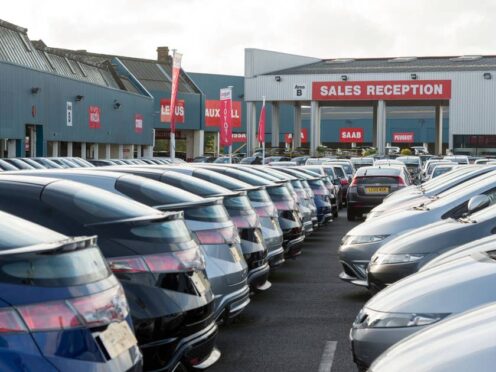Spending on car purchases has risen three times faster than for public transport journeys, new figures show.
Some £57.4 billion was spent in the UK on new and used cars in 2023, up 6% on five years earlier, according to AA analysis of Office for National Statistics data.
Consumer spending on public transport – including rail, buses, taxis, air and water travel – was £60.9 billion last year, representing a 2% increase over the same period.
Running a car also accounted for a large chunk of the £78.6 billion spent on what is described as the operation of personal transport, with spending on fuel and lubricants up 20% since 2018 to £41.7 billion.
AA head of roads policy Jack Cousens claimed the figures highlight how vital motoring is for people in the UK, as well as the country’s finances.
He told the PA news agency: “These latest ONS figures underline the UK’s reliance on cars and the huge amounts of money they generate for the economy – not to mention VAT on that spending, and other tax.
“Cars are not just necessary but essential on so many levels.
“Even if a significant amount of car use was transformed into take-up of public transport, the impact on the economy and other income generation would be dramatic.
“Just think how much councils would lose if a high percentage of cars stopped turning up to their car parks or needing parking permits, and getting fined.
“The key question is whether what consumers spend on cars would translate into income for public transport and cover the cost of infrastructure investment to enable that.
“It seems that getting travelling consumers to fork out for their own transport and its maintenance, and then tax the heck out of them, is a pretty good deal for the public purse.”
